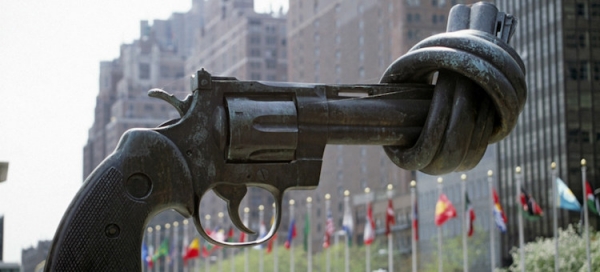The COVID-19 pandemic has been forcing the international community to rethink some of its longstanding notions, especially that of security. The pandemic confirmed the existence of threats from which we cannot be protected by traditional means such as weapons, showing how aberrant governments’ military expenses are. In 2019, for example, 73 billion dollars were spent on nuclear weapons worldwide. If only a small percentage of these enormous expenses had been spent on the health care sector, our societies would have responded to the pandemic much better than they did. COVID-19 demonstrated that investment in health should be a priority for our governments and, probably, consistent cuts of public expenditure will be made in expensive arms programs.
The pandemic was also a wake-up call on political leaders’ irrationality, considering how many politicians did not hesitate to put personal or political interest before human lives, refusing to delay elections or public celebrations in spite of the virus. Human rationality has always been the basis of nuclear deterrence: countries would buy increasing amounts of nuclear weapons knowing that no one would ever start a nuclear war, as it would result in mutual destruction. In the aftermath of the pandemic, this certainty is not so solid anymore and strengthening disarmament conventions seems more urgent than ever.
Finally, COVID-19 was a tragic proof of how dangerous unilateralism can be. The world needs coordinated responses to global issues, which means improving multilateral cooperation - especially in the frame of international organizations. This also applies while addressing the issue of nuclear weapons proliferation: unilateralism is a dangerous threat and, as most nuclear disarmament treaties are now ended, it is crucial to give a new impulse to disarmament negotiations and multilateral cooperation on the subject.
To read more, please visit:
https://www.un.org/disarmament/unoda-continues-its-mandate-message-on-covid-19/
https://humanitariandisarmament.org/covid-19-2/open-letter-on-covid-and-humanitarian-disarmament/
https://controlarms.org/news/arms-control-in-time-of-covid-19/
Author: Margherita Curti; Editor: Matteo Consiglio




